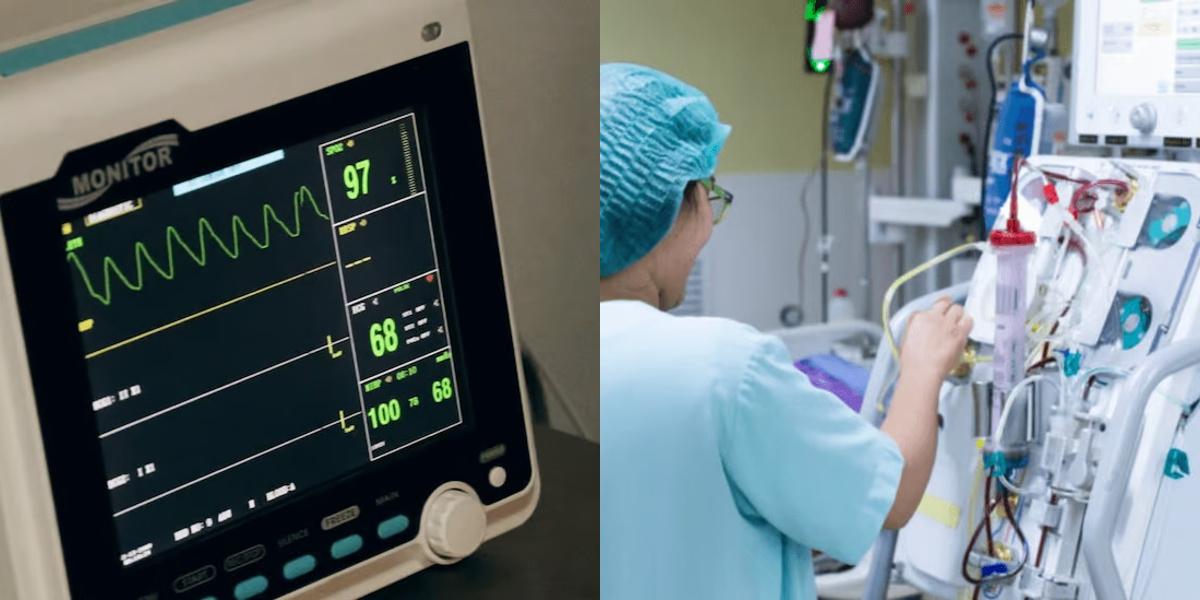EKG vs Hemodialysis Technician

Key Points:
- EKG technicians perform heart tests, while hemodialysis technicians operate dialysis machines to filter waste from the blood.
- EKG technicians typically earn slightly more than hemodialysis technicians, but both have competitive salaries.
- Demand for both positions is expected to grow due to an aging population.
- Both careers require in-person training, but EKG technicians may have more online course options.
- EKG technician training is generally shorter and less expensive than the training required for hemodialysis technicians.
Before diving into the specifics of each profession, let's briefly discuss what an EKG technician and a hemodialysis technician do.
An EKG technician is responsible for operating electrocardiogram machines to record and monitor patients' heart activity. They attach electrodes to the patient's chest, arms, and legs, and then record the electrical impulses produced by the heart. These readings are then used by medical professionals to diagnose and treat heart conditions.
On the other hand, a hemodialysis technician is involved in the treatment of patients with kidney disease. They operate dialysis machines that filter waste and excess fluid from the blood of patients whose kidneys are not functioning properly. Hemodialysis technicians also monitor patients during the treatment process and ensure that the equipment is functioning correctly.
Now that we have a basic understanding of the roles of EKG and hemodialysis technicians, let's delve into the differences between these two professions.
EKG vs Hemodialysis Technician: Career Outlook and Salary
When considering a career in any field, it's important to understand the job outlook and potential salary. Here's a brief overview of the career outlook and salary expectations for EKG and hemodialysis technicians:
EKG Technician Career Outlook:
- According to the Bureau of Labor Statistics (BLS), the employment of cardiovascular technologists and technicians (which includes EKG technicians) is projected to grow 7% from 2019 to 2029, faster than the average for all occupations.
- The demand for EKG technicians is driven by the aging population and the increasing prevalence of heart disease.
- The median annual wage for cardiovascular technologists and technicians was $58,730 in May 2020, according to the BLS.
Hemodialysis Technician Career Outlook:
- The BLS does not provide specific data for hemodialysis technicians. However, the demand for healthcare professionals, including those in the field of nephrology (which includes hemodialysis), is expected to grow due to the aging population and the increasing prevalence of chronic kidney disease.
- The median annual wage for medical and clinical laboratory technologists and technicians, which includes hemodialysis technicians, was $54,180 in May 2020, according to the BLS.
Final Thoughts
Choosing between a career as an EKG technician or a hemodialysis technician ultimately depends on your interests and career goals. Both professions provide opportunities to work in healthcare settings and make a positive impact on patients' lives. Consider your strengths, preferences, and the specific job duties and requirements of each profession before making a decision.
Remember, vocational training programs are an excellent way to enter the healthcare field quickly and start a rewarding career. Research and explore your options, and don't hesitate to reach out to professionals in the field for guidance and advice. Good luck on your journey to becoming a healthcare professional!
Dreambound's program is accessible in diverse locations. Take a deep dive into these blogs for comprehensive insights into the two vocations, covering their requirements and guidance on joining:

Fel is a student support representative who guides enrollees to the right program and answers their queries. She's committed to helping students and takes pride in her work. In her free time, she enjoys sightseeing and hanging out with loved ones.




